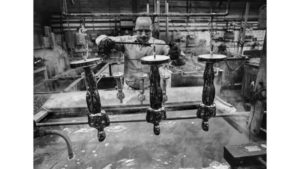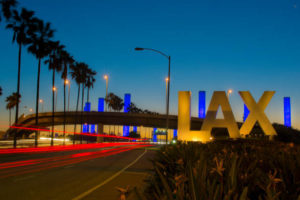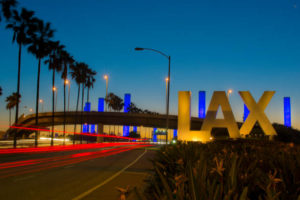As President Biden hoped, nations including Canada and Japan joined the U.S. in setting stronger goals at his climate summit. But China and India balked.
TOP STORIES
A New U.S. Climate Pledge, but Will the World Follow?
President Biden came into this week’s virtual climate summit with a goal of trying to reassure a skeptical world that the U.S. is back as a leader on the issue.
As the summit heads into its second and final day, Biden has appeared to have accomplished that. But the talks also revealed the limits of his ability to build support for the more aggressive action that experts say is needed.
Leaders of 40 countries said they were serious about combating climate change, but only a few matched their rhetoric with new commitments for reducing emissions, and those who did said little about how they’d meet those targets.
The president announced at the outset that he was doubling the United States’ initial commitment to reduce planet-warming emissions under the 2015 Paris climate agreement, signaling a break from the U.S. abandonment of that pact under former President Trump. Japan and Canada said they would strengthen their goals as well.
Fulfilling the U.S. commitment will require sweeping changes in how Americans power their vehicles, homes and factories, but administration officials said little about how the country would get there. The new goal is slightly more aggressive than California’s, according to two independent analyses.
However, China and India — Nos. 1 and 3, respectively, in highest carbon emissions — offered nothing new. Neither country announced stronger plans to reduce emissions in the near term, to end their reliance on coal-generated electricity or, in China’s case, to stop financing the construction of coal-fired plants abroad.
More Politics
— Energized by the conservative tilt of the U.S. Supreme Court, legislators in Republican-led states have put forward hundreds of abortion restrictions, including near-total bans, eager to offer the vehicle to achieve a long-standing goal: the unwinding of Roe vs. Wade.
— In a rare, if fleeting, moment of bipartisanship, the Senate approved a bill designed to make it easier for law enforcement to investigate hate crimes against Asian Americans, which have surged amid the COVID-19 pandemic.
— A decades-long effort to turn Washington, D.C., into the nation’s 51st state took a further step as the House of Representatives approved a bill. It’s now headed for a showdown in the Senate, where Democrats hold a narrow majority.
For more news and analysis, sign up for our Essential Politics newsletter, sent to your inbox three days a week.
Proof of Vaccination Will Be Required
The University of California and California State University said they will require COVID-19 vaccinations for all students, faculty and staff on campus properties this fall once the Food and Drug Administration gives formal approval to the vaccines and supplies are sufficiently available.
The directive is the largest of its kind in U.S. higher education, affecting more than 1 million members of the two public university systems. More than five dozen colleges nationwide have already announced they will require vaccination for enrollment this fall, including Yale, Princeton, Columbia and, in Claremont, Pomona and Claremont McKenna.
But the UC and Cal State systems have not yet taken that step because of questions over the legality of requiring vaccines before they have been formally approved by the FDA. And as with other mandatory shots for measles, mumps, rubella and chickenpox, the COVID-19 directive would allow for students or employees to seek an exemption based on medical or religious grounds.
More Top Coronavirus Headlines
— When needles strike fear, a mock clinic offers practice runs before patients get their COVID-19 vaccines.
— With vaccinations increasing and low transmission and hospitalization rates, is it time to get rid of masks? In short, no.
— Walk-up appointments are being offered at Los Angeles County’s mass COVID-19 vaccination sites through Monday, though officials said supply will dictate how many people they can accommodate. Here’s where to go.
Backlash for a Judge’s Order on Homelessness
A federal judge’s order calling on L.A. to offer shelter or housing to every homeless person on skid row is setting off growing alarm that his decision could upend years of homeless policy in the city, stalling construction of dozens of housing projects.
This week, Judge David O. Carter threw a major wrench into L.A.’s plan for addressing homelessness, demanding that Mayor Eric Garcetti take roughly $1 billion he had been planning to spend on the crisis and put it into an escrow account. At the same time, he issued a blistering critique of the Proposition HHH program, the 2016 bond measure whose projects have been beset by delays and rising costs.
Some HHH developers, who already have projects under construction or are months away from breaking ground, said they fear Carter intends to raid HHH funding and direct the money elsewhere. The order is also drawing criticism from city leaders who say it lacks a basic grasp of how municipal budgets work.
.
.
Ads by: Memento Maxima Digital Marketing
@[email protected]
FROM THE ARCHIVES
What goes into making an Oscar? In 1970, The Times delved into the process. At the time, they were made at a Los Angeles company called Dodge Trophies. The prized statuettes took weeks to create and involved layers of copper, nickel and gold before they were ready for their closeups. Ultimately, 40 were made that year.
But don’t make the mistake of thinking you can sell them. In a 2016 story, the Academy of Motion Picture Arts and Sciences told The Times there are strict rules to prevent the awards from becoming “items of commerce.” They’ll pursue legal action for selling both real and fake ones. But if you’re really committed to a sale? The Academy will buy it back for a flat $10.
.
March 2, 1970: Cleave Sharry plates Oscar statuettes in layers of copper, nickel and gold at Dodge Trophies Inc. The Los Angeles company made the Academy Awards statuettes for decades. (Larry Sharkey / Los Angeles Times)
YOUR WEEKEND
— This year’s Academy Awards take place Sunday. We have predictions for every category — and the Oscar pool odds.
— Vaxxed, waxed and ready to kick off Shot Girl Summer in L.A.? Here are five expert tips.
— L.A. is in the middle of a chile sauce craze. Here are 16 to try now — or make your own.
— “I killed my fiddle-leaf fig. But allowing it to die was a lesson in processing grief.”
CALIFORNIA
— The state Legislature confirmed Democratic Assemblyman Rob Bonta as California attorney general, backing the appointment of an advocate for criminal justice reform.
— The father of the man police say killed Kristin Smart and hid her body was released from a San Luis Obispo County jail after posting bail, authorities said.
— Former Palmdale Mayor Jim Ledford pleaded guilty to a single count of perjury, ending a years-long investigation of a pay-to-play scandal.
— A lurking earthquake fault has blocked Hollywood’s tallest building. Will it ever rise? (This story is a Times subscriber exclusive.)
Support our journalism
Subscribe to the Los Angeles Times.
NATION-WORLD
— SpaceX launched four astronauts to the International Space Station early Friday morning, marking the Elon Musk-led company’s second regular flight there with humans aboard.
— The Supreme Court upheld a life term in prison without parole for a defendant who was 15. The decision retreats from a pair of earlier rulings that life sentences for minors convicted of murder should be extremely rare and limited to cases in which authorities determined a young person could not be rehabilitated.
— Weeks after their arrest, more than a dozen alleged plotters in Jordan were freed over their involvement in a royal feud between King Abdullah II and his half-brother and onetime crown prince, Prince Hamzah.
— Precious relics of Afghanistan’s ancient past are returning home — even as the nation confronts deepening uncertainty about its future — after the collection was seized from a New York-based art dealer who authorities say was one of the world’s most prolific smugglers.
— Ingenuity, NASA’s little Mars helicopter, aced its second test flight, soaring even higher and longer than before.
HOLLYWOOD AND THE ARTS
— Oscars voters have long been drawn to stories about folks who win Grammys. Yet this year’s field stands out for the number of films about Black music legends.
— What are the Spirit Awards like in the pandemic? Well, for starters, “Nomadland” won again.
— The deft new Peacock comedy “Rutherford Falls” finds the ideal target: white people’s love of a made-up past, writes television critic Robert Lloyd.
— The story behind the Marvel Cinematic Universe’s first Black Captain America: Heading into the finale of “The Falcon and the Winter Soldier,” we dig into the comic book history behind its tale of race and superheroes in America.
BUSINESS
— HBO Max gained 2.7 million subscribers in the first quarter, boosted by “Godzilla vs. Kong,” “Tom & Jerry,” and Zack Snyder’s cut of “Justice League.” It was an early test of a strategy to steer new movies to the service the same day they arrive in theaters.
— How did REI spend Earth Month? Glorifying a gas-guzzling SUV.
SPORTS
— The Dodgers wasted several opportunities in a 3-2 loss to the Padres.
— The curious case of Vivian Flores, Lakers catfish queen.
Free online games
Get our free daily crossword puzzle, sudoku, word search and arcade games in our new game center at latimes.com/games.
OPINION
— “I am not new to protest and I am not new to challenge and confrontation,” writes Rep. Maxine Waters in response to critics saying she encouraged violence. “Anybody who knows me or has seen the way I stand up for my community knows that I am nonviolent.”
— Biden has set the right climate goal. Now we as a country have to do the work meet it — and that’s the hard part, writes The Times’ editorial board.
WHAT OUR EDITORS ARE READING
— How Sen. Josh Hawley and Rep. Marjorie Taylor Greene juiced their fundraising numbers. (ProPublica)
— A new ultra-white paint could someday reduce reliance on air conditioners. (Smithsonian)
ONLY IN L.A.
As if COVID-19 shutdowns and the financial fallout weren’t enough, unwanted pests, including insects and rodents, crept into the dark, quiet Getty Museum in Brentwood, as well as museums globally. Getting rid of them has been an enormous undertaking. At the Getty, squirrel-hair dusters and dental picks were among the tools broken out to fight against moths.
Comments or ideas? Email us at [email protected].
.
Ads by: Memento Maxima Digital Marketing
@[email protected]
|















